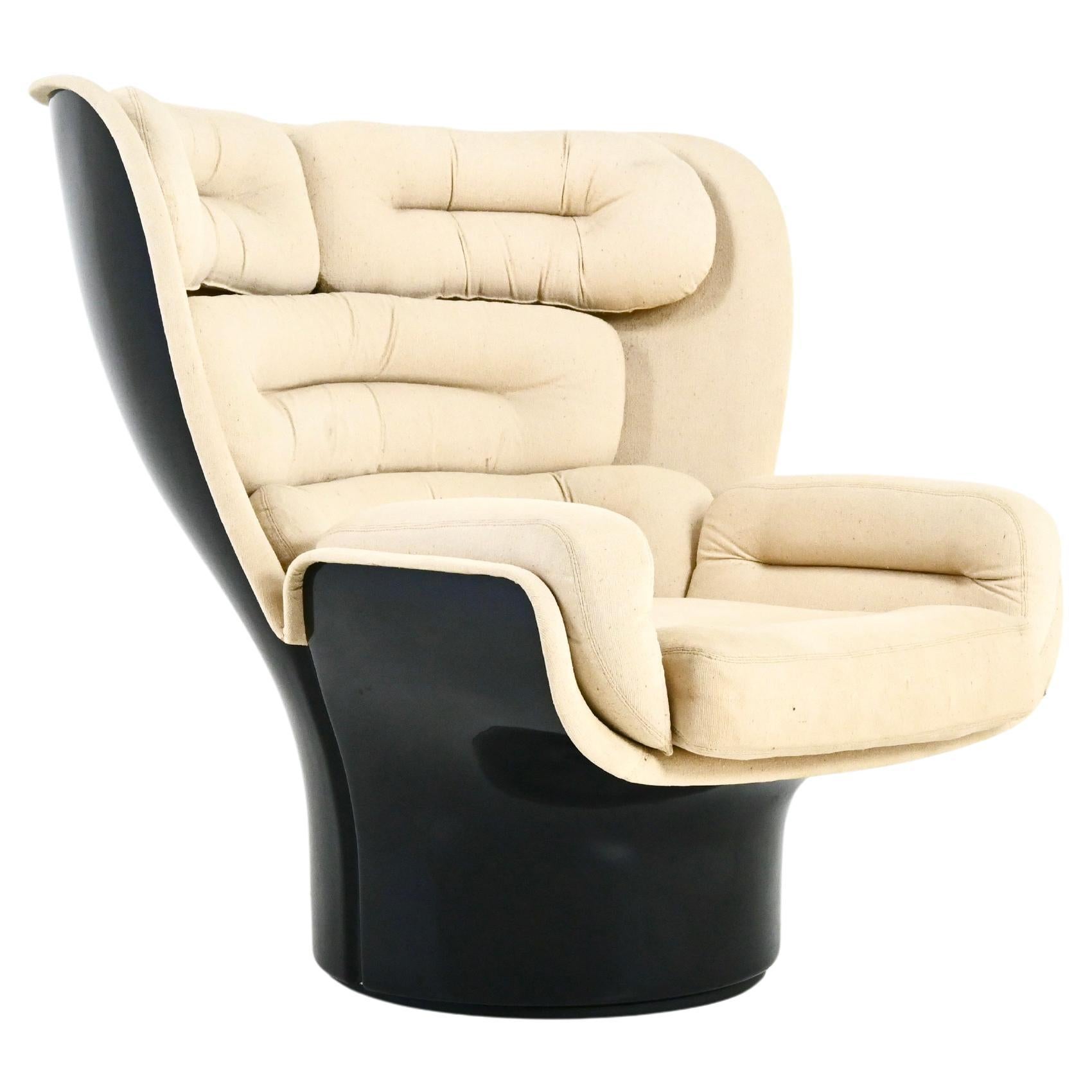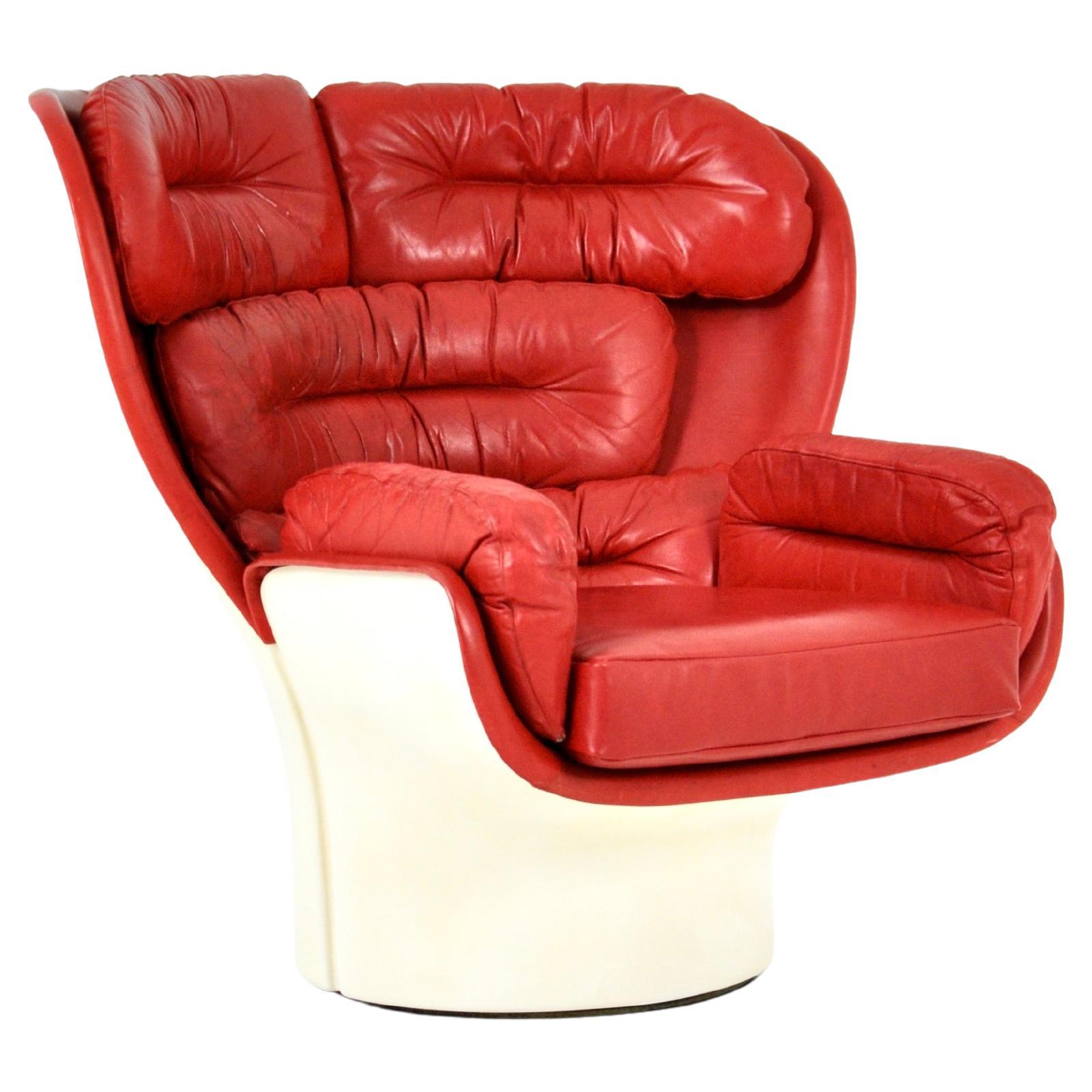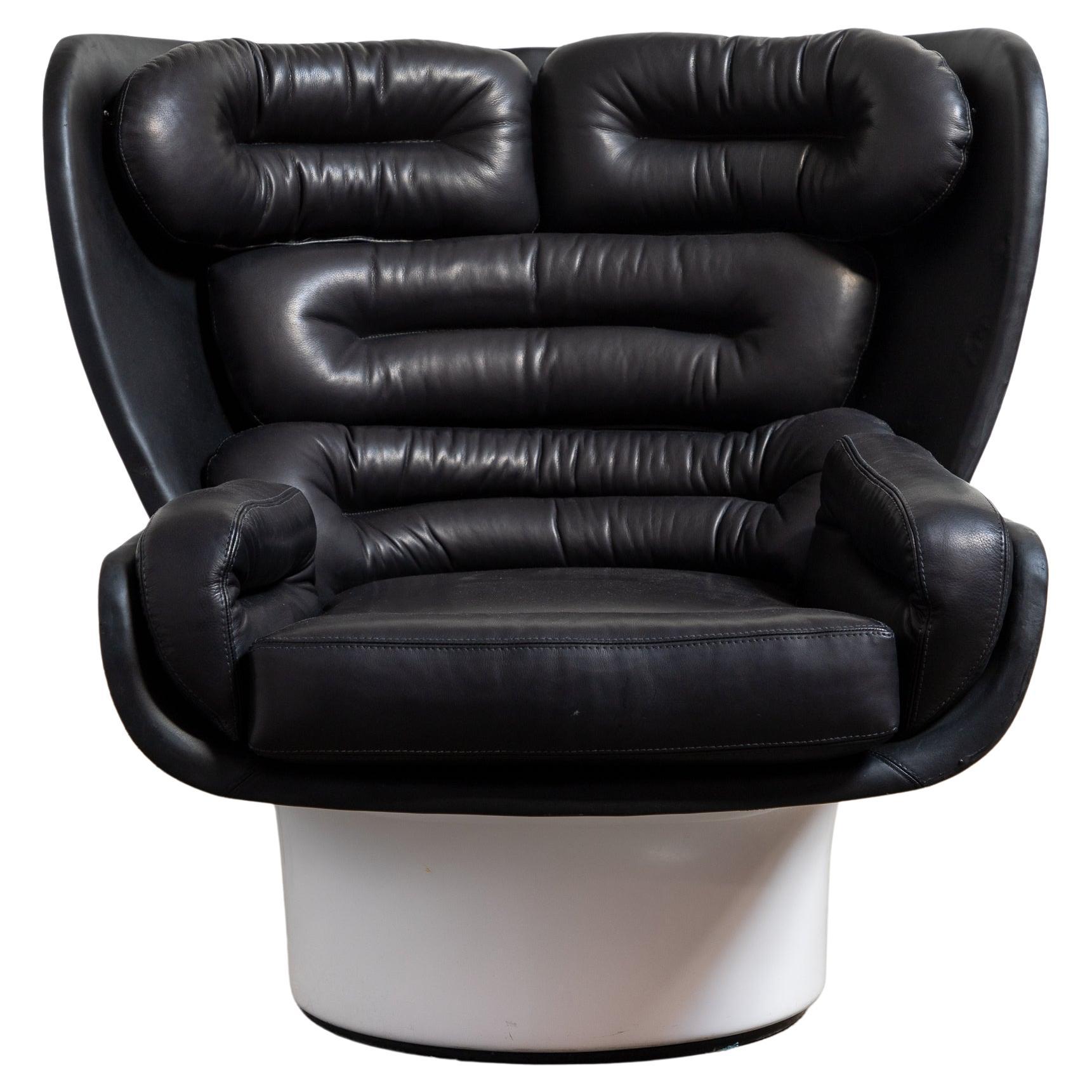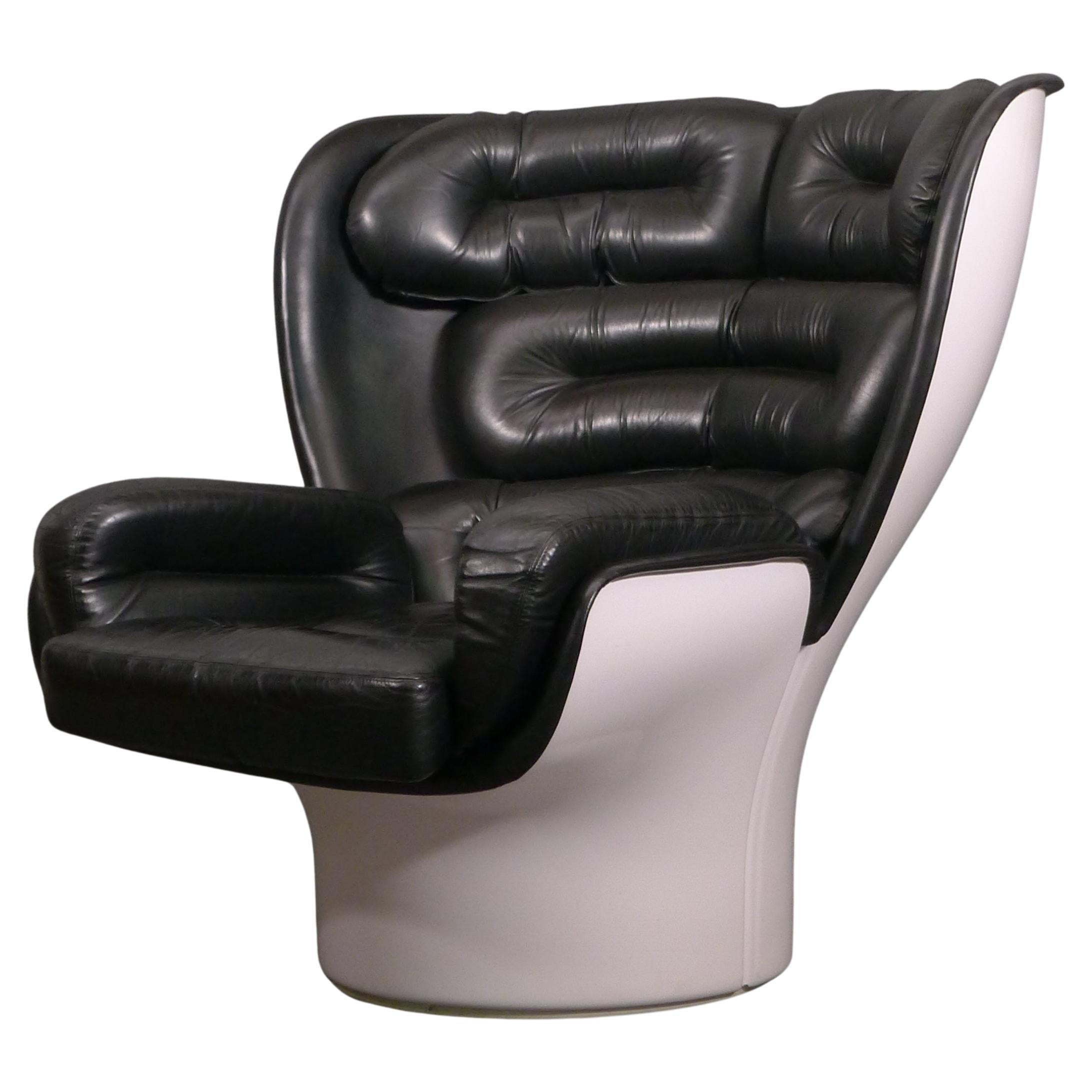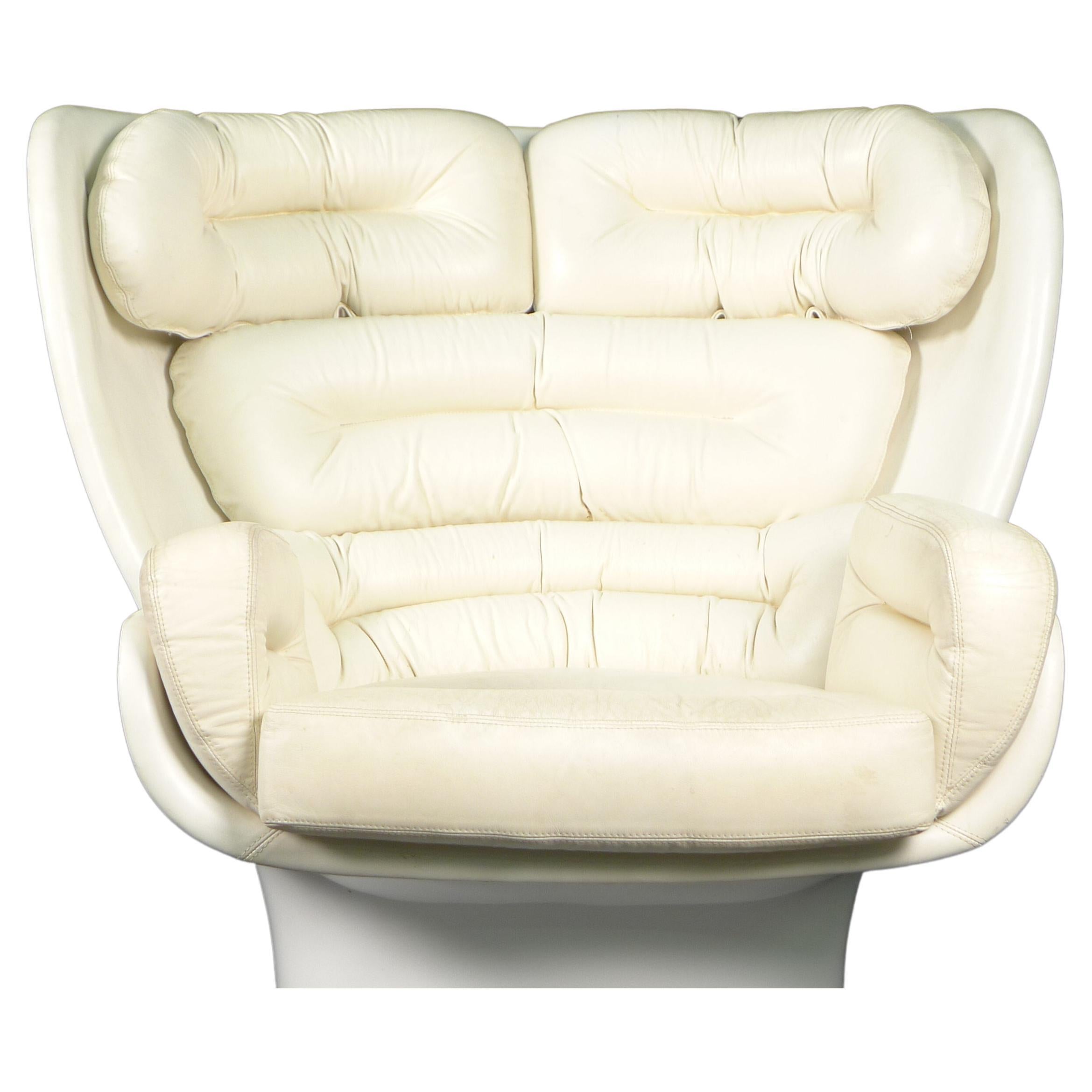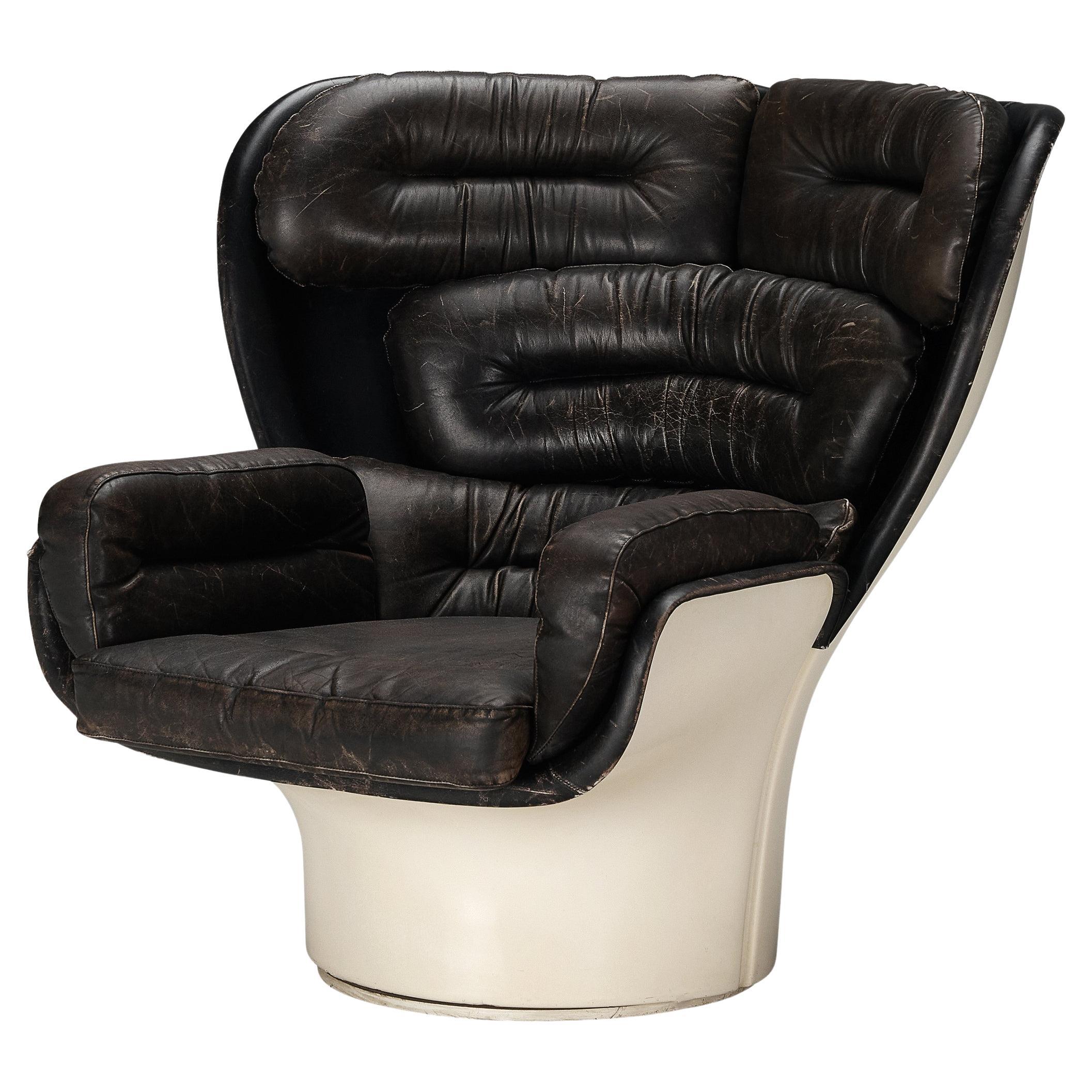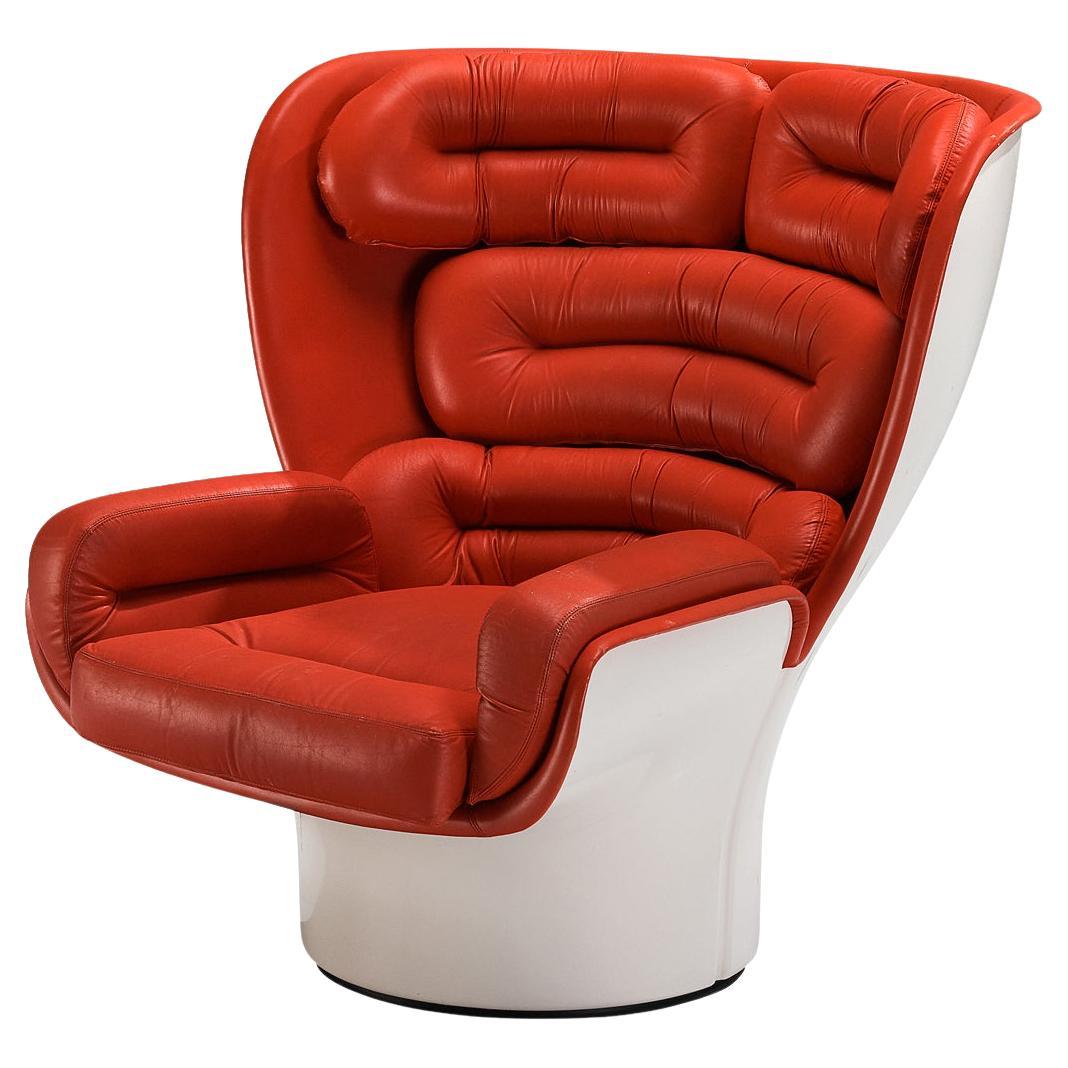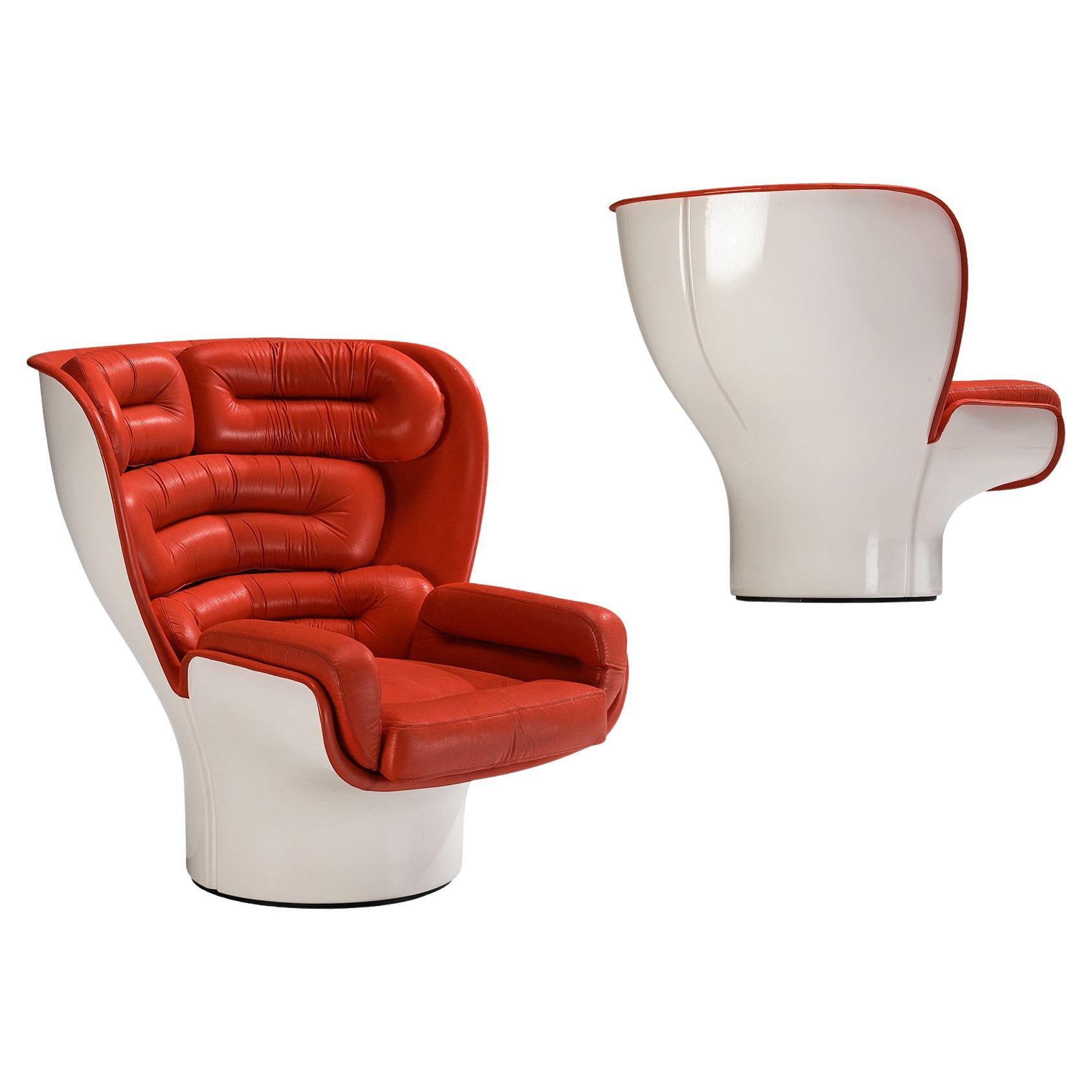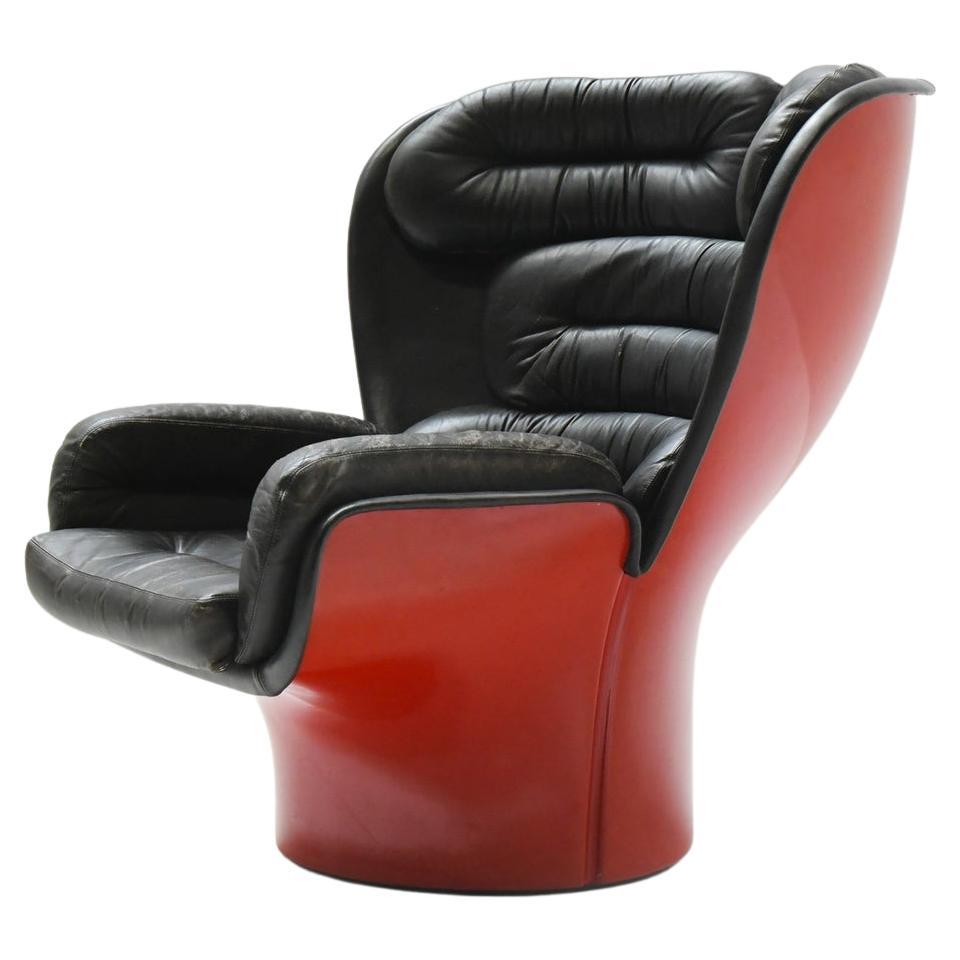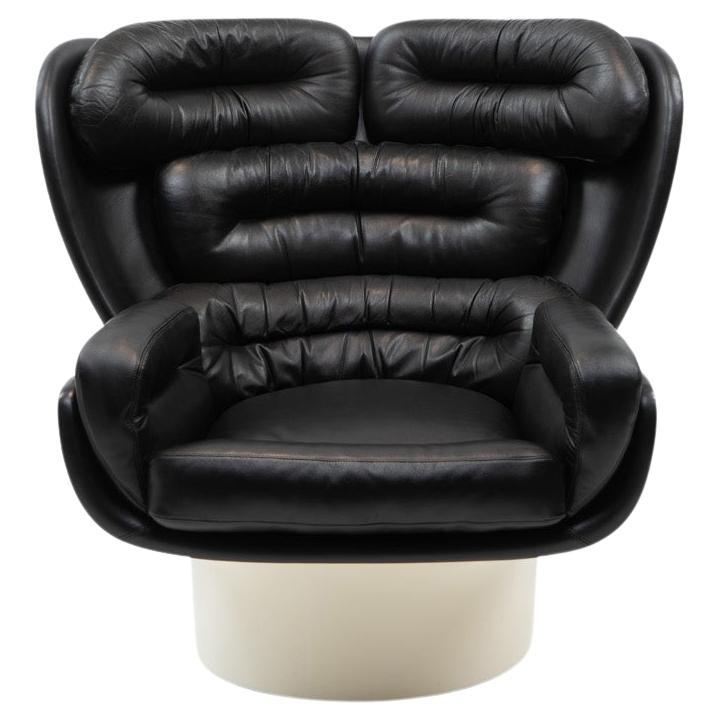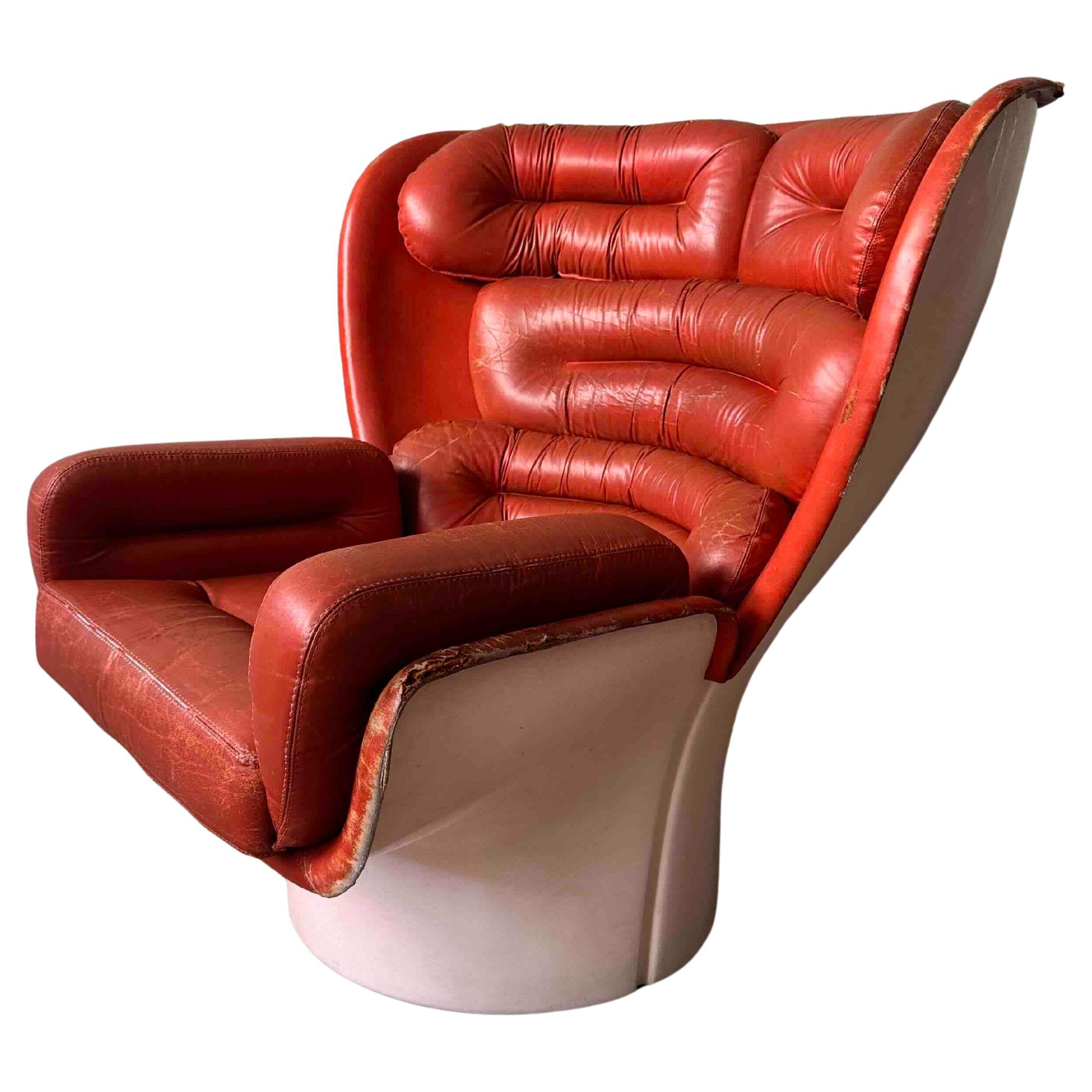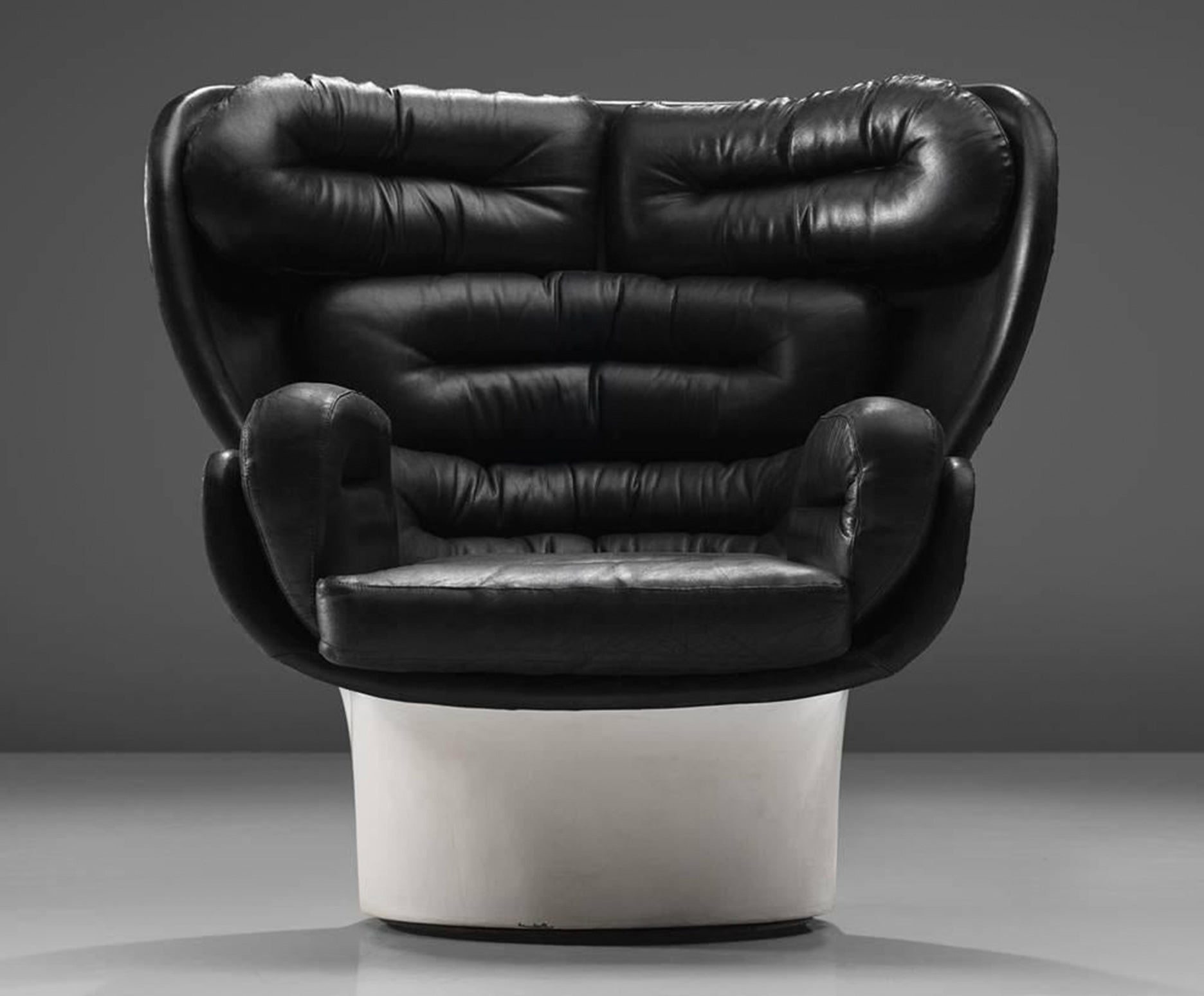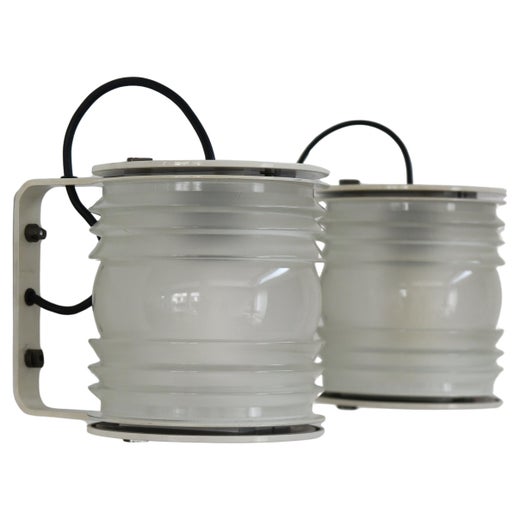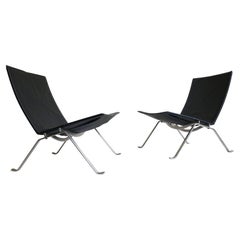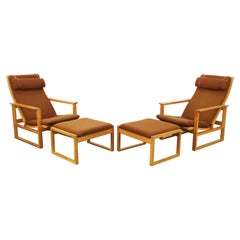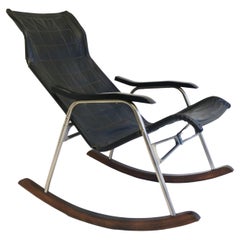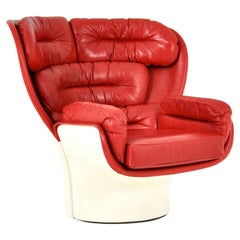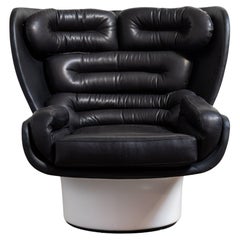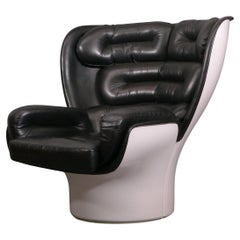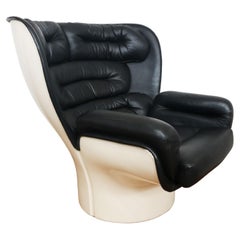
Rare vintage original Joe Colombo Elda chair by comfort Italy 1960 black leather
View Similar Items
Rare vintage original Joe Colombo Elda chair by comfort Italy 1960 black leather
About the Item
- Creator:Comfort, Italy (Maker),Joe Colombo (Designer)
- Design:
- Dimensions:Height: 36.82 in (93.5 cm)Width: 39.77 in (101 cm)Depth: 37.01 in (94 cm)Seat Height: 16.15 in (41 cm)
- Style:Mid-Century Modern (Of the Period)
- Materials and Techniques:
- Place of Origin:
- Period:
- Date of Manufacture:1960
- Condition:Wear consistent with age and use.
- Seller Location:Ijzendijke, NL
- Reference Number:1stDibs: LU2997341344242
Elda Armchair
With its bulbous fiberglass shell and plush leather cushions, the Elda chair looks as if it belongs on a big-budget 1970s-era film set. That’s just where you’ll find it — the piece made its feature-film debut in the 1977 James Bond movie The Spy Who Loved Me. The chair was created by Cesare "Joe" Colombo (1930–71), an Italian artist-turned-industrial-designer known for his retro-futuristic works. Colombo started his career as an artist, studying painting at the Accademia di Belle Arti di Brera in Milan before he went on to study architecture at the Polytechnic University. Throughout the 1950s, Colombo found a home within the Abstract Expressionist movement, creating paintings and sculptures that were exhibited throughout Europe.
Colombo’s focus shifted to design when he took over his family business, an electrical appliance manufacturing company, where he experimented with industrial production techniques. In 1962, he opened his own architecture and design firm. With a focus on futuristic living systems inspired by the technological advances of the space race, Colombo created everything from air-conditioning units to dinnerware to furniture, most famously the 1963 Elda chair.
Named after Colombo’s wife, the Elda chair was designed to wholly surround its sitter, as if it were hugging them. The designer envisioned the chair to be a place of comfort in the home from which you could use digital technology to connect with the world — as it turns out, Colombo had impressive foresight. A year following his death, Colombo’s design work was included in the 1972 exhibition “Italy: The New Domestic Landscape” at the Museum of Modern Art in New York City.
Joe Colombo
He died tragically young, and his career as a designer lasted little more than 10 years. But through the 1960s, Joe Colombo proved himself one of the field’s most provocative and original thinkers, and he produced a remarkably large array of innovative chairs, table lamps and other lighting and furniture as well as product designs. Even today, the creations of Joe Colombo have the power to surprise.
Cesare “Joe” Colombo was born in Milan, the son of an electrical-components manufacturer. He was a creative child — he loved to build huge structures from Meccano pieces — and in college he studied painting and sculpture before switching to architecture.
In the early 1950s, Colombo made and exhibited paintings and sculptures as part of an art movement that responded to the new Nuclear Age, and futuristic thinking would inform his entire career. He took up design not long after his father fell ill in 1958, and he and his brother, Gianni, were called upon to run the family company.
Colombo expanded the business to include the making of plastics — a primary material in almost all his later designs. One of his first, made in collaboration with his brother, was the Acrilica table lamp (1962), composed of a wave-shaped piece of clear acrylic resin that diffused light cast by a bulb concealed in the lamp’s metal base. A year later, Colombo produced his best-known furniture design, the Elda armchair (1963): a modernist wingback chair with a womb-like plastic frame upholstered in thick leather pads.
Portability and adaptability were keynotes of many Colombo designs, made for a more mobile society in which people would take their living environments with them. One of his most striking pieces is the Tube chair (1969). It comprises four foam-padded plastic cylinders that fit inside one another. The components, which are held together by metal clips, can be configured in a variety of seating shapes (his Additional Living System seating is similarly versatile).
Vintage Tube chairs generally sell for about $9,000 in good condition; Elda chairs for about $7,000. A small Colombo design such as the plastic Boby trolley — an office organizer on wheels, designed in 1970 — is priced in the range of $700.
As Colombo intended, his designs are best suited to a modern decor. If your tastes run to sleek, glossy Space Age looks, the work of Joe Colombo offers you a myriad of choices.
Find vintage Joe Colombo lamps, seating and other furniture for sale on 1stDibs.
More From This Seller
View AllVintage 1950s French Mid-Century Modern Lounge Chairs
Metal
Early 2000s Danish Mid-Century Modern Lounge Chairs
Stainless Steel
Vintage 1950s Swedish Mid-Century Modern Lounge Chairs
Leather, Wool, Oak
Vintage 1960s Japanese Mid-Century Modern Rocking Chairs
Chrome
Vintage 1950s Dutch Mid-Century Modern Lounge Chairs
Wool, Walnut
Vintage 1950s Danish Mid-Century Modern Lounge Chairs
Faux Leather, Teak
You May Also Like
Vintage 1960s Italian Mid-Century Modern Lounge Chairs
Fiberglass, Canvas
Vintage 1960s Italian Mid-Century Modern Lounge Chairs
Metal
20th Century Italian Space Age Lounge Chairs
Leather, Fiberglass
Vintage 1960s Italian Mid-Century Modern Lounge Chairs
Leather, Fiberglass
Vintage 1960s Italian Mid-Century Modern Lounge Chairs
Leather, Fiberglass
Vintage 1960s Italian Post-Modern Lounge Chairs
Leather, Fiberglass
